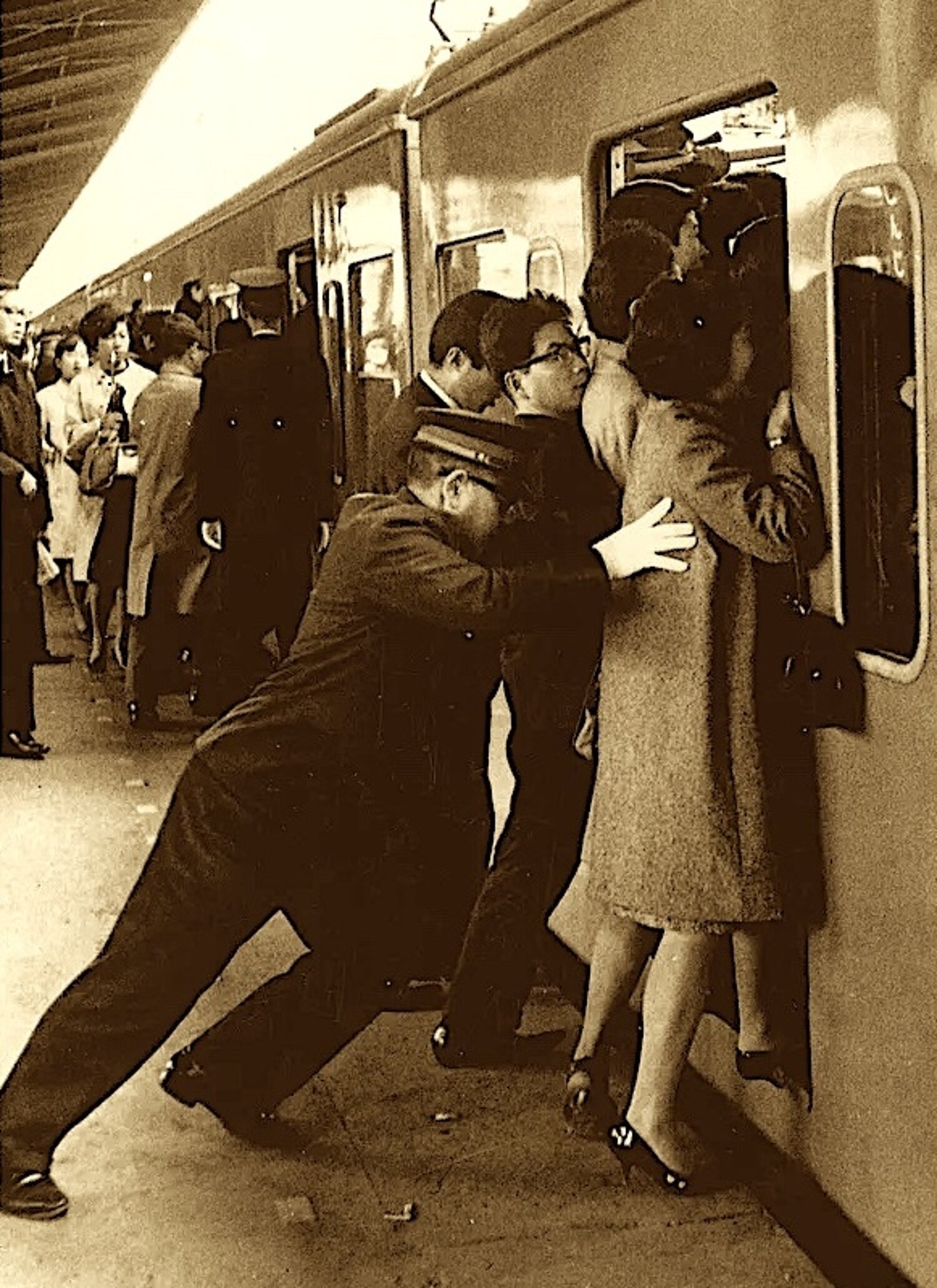80 per cent? That's enough!
September 2024 • 000 words •Header image © Unsplash Nikola Tasic
80 per cent of what is possible must be enough. Striving for 100 per cent is a perfectionist evil. But does it really help us? The answer is here.
The other day, my computer's battery needed servicing. My dealer gave me the all-clear and advised me to charge the battery to only 80 per cent. This would extend its life considerably. Now I have such a limiter. I keep reading that electric cars are charged to 80 per cent relatively quickly at charging stations. But what about the remaining 20 percent? Experts say it takes a lot of energy to reach the full 100 per cent.

I imagine it's like the morning subway ride, where passengers fill the car to 80 per cent relatively quickly. But if you want to fill the carriage to 100 per cent, you need power from the outside, and the images of the white-gloved train pushers in the Tokyo subway come to mind.
The Pareto-Principle
So the question is: is 80 per cent enough to make progress and meet our needs?
Yes, you will say, I know that. Then you've heard of the Pareto Principle. The Pareto Principle, also known as the 80/20 rule, states that 80 percent of the results can often be achieved with only 20 percent of the total effort. This rule is used in many areas to prioritise and work more efficiently. The internet is full of examples and guidance on this principle and is not stingy with, shall we say, interesting examples: 80 percent of the crimes should be committed by 20 percent of the criminals. That sounds easy and like little effort. I would like to see an attempt to catch the other 80 per cent of criminals. The Pareto principle gives us a rough guide, but it doesn't tell us exactly how much extra effort is needed for the remaining 20 percent of the total. The remaining 20 per cent should actually be 80 per cent of the total effort if it is 100 per cent. At least the majority of the work. Is it worth it? Is it even what you want? Who needs 100 per cent when 80 per cent is enough?
Berlin's Tagesspiegel headlines: Freelance opportunities for the advanced: 80 per cent is really good enough! Our author used to spend far too many hours at her desk. Now she gets more done in less time. In purely mathematical terms, she used to produce 100 per cent results with 100 per cent effort. Now she comes to the newsroom with an 80 per cent result, but more often. This trend can be seen in many places. The feeling of holding something unfinished is nothing new. We are supposed to be satisfied with 80 percent. Satisfied?
Who or what decides which 20 per cent are left behind, who has to wait for the next underground train and is therefore late? What if it turns out later that these missing 20 per cent are crucial? I don't want to read texts that are only 80 per cent researched. Sure, I can do 80 per cent of my business with 20 per cent of my clients, but I don't want to miss out on the other 20 per cent. I am convinced that there is undiscovered potential in the other 80 per cent of my customers! I should really be trying to do business with all 100 per cent of my customers and, if possible, get new customers as well.

More or less
Creatives are often expected to give more than 100 per cent, sometimes even 120 per cent. They are expected to go the extra mile, to show what is possible, even if it means going way beyond what is required. Of course, they want to be let off the leash. Isn't that what drives us all? To be better, to innovate, to excel? If we stayed at 80 per cent, we would fall far short of our expectations. The news magazine Der Spiegel has a new section: Show me your calendar. The aim is to show the public how efficiently some managers use their precious time. They become managers of their own time and yet can only do what they are told. So that it remains plannable.
80 per cent can be planned and implemented efficiently, and consensus can be reached relatively quickly. Is 100 per cent a bottomless pit because expectations are too different? In other words, can we agree on 80 per cent but not on 100 per cent?
In his blog www.user-experience-blog.de, Ulf Schubert explains the misunderstanding of the Pareto principle and comes up with the beautiful phrase: 'Who needs golden taps?' When I was active, I also heard the phrase: 'That's enough, we don't want to reinvent the wheel'. Wanting the maximum is often equated pejoratively with perfectionism. In his blog post, Schubert describes how the imperfect can only ever be a temporary solution and the first step towards the complete fulfilment of wishes and expectations.
In the wake of New Work, agility and iterative-cyclic working, are our expectations even moving towards 30 per cent or less? The results are roughly sketched out so that we have a common picture in mind. Then there is a new briefing. And the hope of having an overall result after a manageable number of cycles.
Talking of cycles, back to the battery: the battery in my iPhone is getting on in years and only holds 80 per cent. At the same time, the display shows '100% charged'. I think we all deserve a full pint of beer at the end of the day, and not just an 80 per cent full pint at full price. //rb
